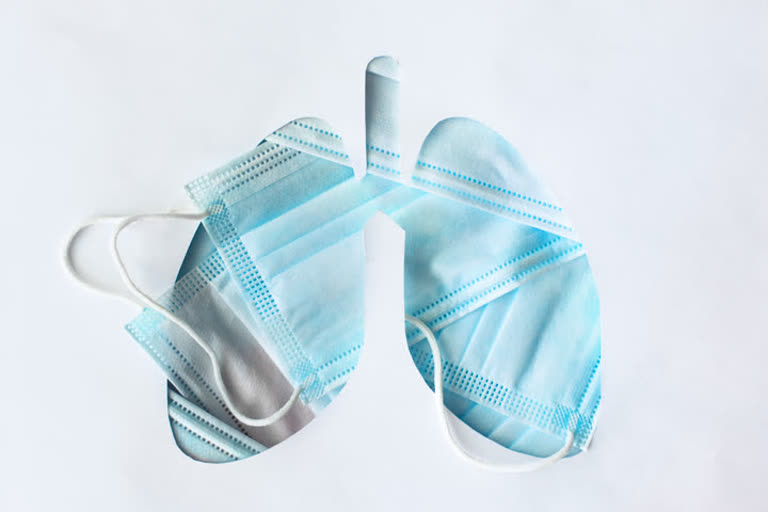India was one of the worst-hit countries when Tuberculosis (TB) began spreading. To date, India has the highest burden of people with tuberculosis, with approximately 26.9 lakh cases as of 2018. According to the World Health Organisation (WHO). “A total of 1.5 million people died from TB in 2018 (including 251 000 people with HIV). Worldwide, TB is one of the top 10 causes of death and the leading cause of a single infectious agent (above HIV/AIDS).”
Recently, there have been a lot of links that came up between TB and COVID-19. People with the former medical condition were known to be at a higher risk of getting severely infected with the novel coronavirus. Dr. Rajesh Vukkala, MD (General Medicine), Consultant Physician at VINN Hospital, Hyderabad, explains, “Tuberculosis is a bacterial infection, which is said to have a higher prevalence in people who are not living a healthy lifestyle like those who are alcoholic, smokers or people with lower immunity, etc.”.
Similarities and differences between Tuberculosis and COVID-19
The reason TB is being linked with COVID-19 is because of certain similarities between them, Here is what our expert explains.
Similarities
- Both these diseases can spread through close contact between people if someone inhales the droplets released in the air if an infected person coughs or sneezes. However, the exact mode of transmission varies.
- Both primarily attack lungs and the symptoms presented are fever, cough, and breathlessness, which are common to both COVID-19 and TB
- People with lower or compromised immunity are the worst affected in both cases
Differences
- TB is a bacterial disease, caused by a bacterium called Mycobacterium tuberculosis. COVID-19 is a viral disease.
- TB is a slow-growing disease and symptoms cannot be identified earlier and are delayed. The virus involved in the COVID-19 multiplies rapidly. Therefore, the symptoms are noticeable within 3-5 days after one is infected and conditions worsen faster.
- “Tuberculosis is curable and preventable” as stated by WHO. A vaccine named BCG is available to prevent the disease. There is no curable treatment or vaccine available for COVID-19 as of now.
- According to WHO, TB bacilli remain suspended in the air in droplet nuclei for several hours after a TB patient coughs, sneezes, shouts, or sings, and people who inhale them can get infected. The size of these droplet nuclei is a key factor determining their infectiousness. Their concentration decreases with ventilation and exposure to direct sunlight.
Whereas, COVID-19 transmission has primarily been attributed to the direct breathing of droplets expelled by someone with COVID-19. Droplets produced by coughing, sneezing, exhaling, and speaking may land on objects and surfaces, and contacts can get infected with COVID-19 by touching them and then touching their eyes, nose, or mouth. Handwashing, in addition to respiratory precautions, is thus important in the control of COVID-19.
Diagnosis
Tuberculosis
TB can be diagnosed in the following ways:
- Sputum Culture
- Erythrocyte Sedimentation Rate (ESR) Test
- PCR Test
COVID-19
- Swab Test
- RT-PCR
- CT Scan
Apart from these, other tests may be carried out as per the symptoms seen in a person. Therefore, it is important to look for the possible symptoms in both cases and contact your doctor or a healthcare provider immediately if they seem to worsen. It is also important that you do not confuse seasonal flu with COVID-19 or tuberculosis. Monitor your symptoms properly and consult a doctor.
Tips for TB patients
Since the very beginning of the COVID-19 pandemic, we have been continuously talking about strengthening our immunity, to lower the effect of the virus on our body. “The fact that someone had TB means that they have compromised immunity, which is why they have to be extra cautious during these times,” says Dr. Vukkala
- Stay away from gatherings
- Mandatorily wear a mask when stepping out
- Maintain a proper distance of at least 6 feet
- Stay away as far as possible from people you see coughing or sneezing.
- Wash or sanitize your hands frequently
- Contact your doctor or any healthcare provider if you seem to have any symptoms of COVID-19
The times are tough but things will get better soon and our lives will be normal again. Therefore, along with following the general preventive measures, stay home as much as possible and stick to your regular treatments as prescribed by the doctor.



